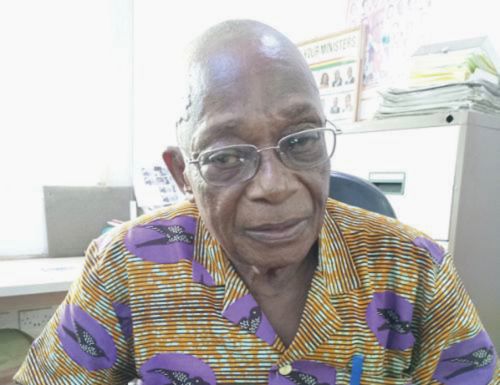
Former MPs, Ministers of State renew appeal for gratuity
Former Members of Parliament (MPs) and Ministers of State, under the presidency of Dr Hilla Limann in the Third Republic, have renewed their appeal to the government to pay their gratuity and other entitlements that come with their status as former MPs and ministers.
The appeal was made by the Organiser of the Ghana Association of Past Members of Parliament and Ministers of State, Nana Yanful Impraim, who was also the Action Congress Party (ANC) MP for the Ajumako-Breman-Enyan Constituency in the Central Region during the Third Republic.
Also in that fold of former MPs is former President John Agyekum Kufuor, who was then a Popular Front Party (PFP) MP for the Atwima Nwabiagya Constituency.
Third Republic MPs
A total of 140 MPs were elected in the general election of June 18, 1979. Out of the number, the People’s National Party (PNP) had a majority of 71 seats, with the Popular Front Party (PFP) following with 42 seats.
The United National Convention (UNC) had 13 seats, while the Action Congress Party (ANC) had 10 seats, with the Social Democratic Front (SDF) managing three seats. There was one independent candidate.
According to Nana Impraim, the former MPs were duly sworn into office in September 1979 after having been elected by their various constituencies to represent them in Parliament while ministers and their deputies were also nominated and approved by the then Parliament.
He recounted that they worked for 27 months without salaries.
Moreover, he indicated that members were entitled to gratuity as stated under article 95 and 96 of the Third Republican Constitution.
Nana Impraim contended that but for the 1981 coup d’état, they would have completed their term and, therefore, they should be deemed to have completed their terms.
He, therefore, maintained that they were entitled to gratuities and also their vehicles that were seized should be returned to them or alternatively be replaced for them.
Appeal to the President
They are appealing to President Nana Addo Dankwa Akufo-Addo to pay their compiled outstanding salaries, as well as gratuities with accrued interest.
Nana Impraim recollected that some of his colleagues had died over the period after the association had made several appeals to
He was of the view that as an association of former MPs and ministers, they had not been fairly treated by the state since the coup of December 31, 1981.
Mr Impraim recounted that former President John Mahama initiated moves to sort out their issues when there was a change in government.
Brief background of the Third Republic
On September 24, 1979, the Third Republic took off with the handing over of power from a military regime to a civilian administration.
The Armed Forces Revolutionary Council (AFRC), led by then Flight Lieutenant Jerry John Rawlings, handed power to Dr Limann following an election that went into a run-off.
On Monday, June 18 1979, the elections took place. The People’s National Party (PNP), an off-shoot of the Convention People’s Party (CPP), made up largely of Nkrumah elements, narrowly won the parliamentary majority, but the presidential contest was too close to call and a run-off election between Dr Limann of the PNP and Victor Owusu of the PFP, also an offshoot of Busia’s Progress Party (PP), was scheduled for July 9,
But that constitutional regime was not going to last long, with allegations of inefficiency and rot at the heart of the government.
Allegations raised against the Limann government included the fact that contracts and import licences were shared among ministers and their cronies, while the public suffered unduly by queueing for basic items such as bread, soap and kerosene.
More so, factory workers, who had been inspired by June 4 to demand probity in their workplaces, were allegedly deliberately corrupted by being allocated some of the goods which they produced so that they could sell them at the factory gates at “
While not much was done to arrest the deterioration of the country’s infrastructure, later investigations of State Protocol requisition books revealed that Limann’s cabinet meetings consumed huge amounts of hard liquor.
Based on these allegations and others, Flt Lt Rawlings took back control of the country as the Chairman of the Provisional National Defence Council (PNDC) on December 31,
Writer’s email:
